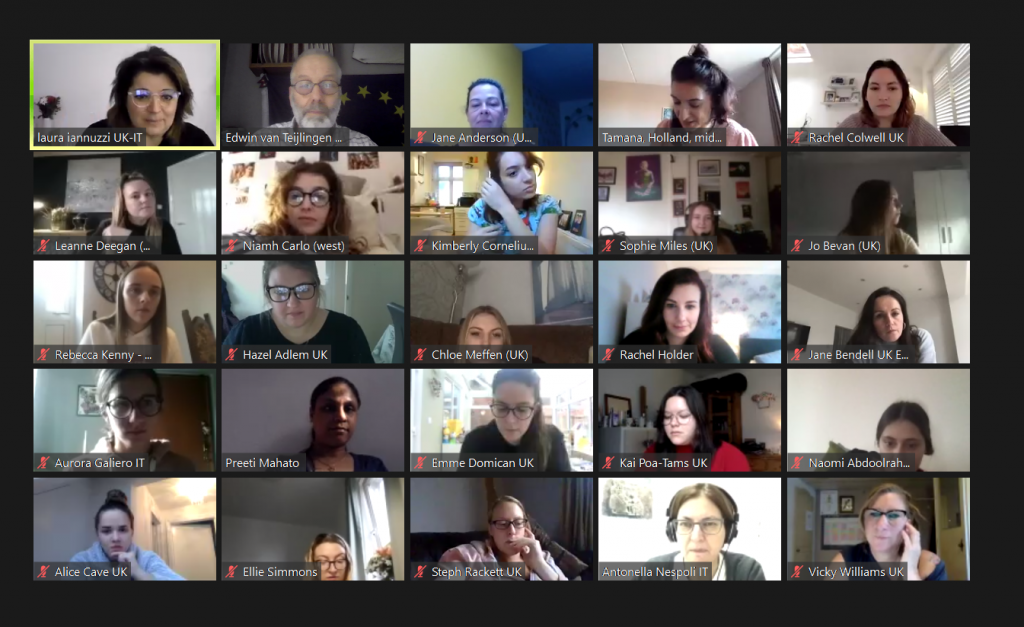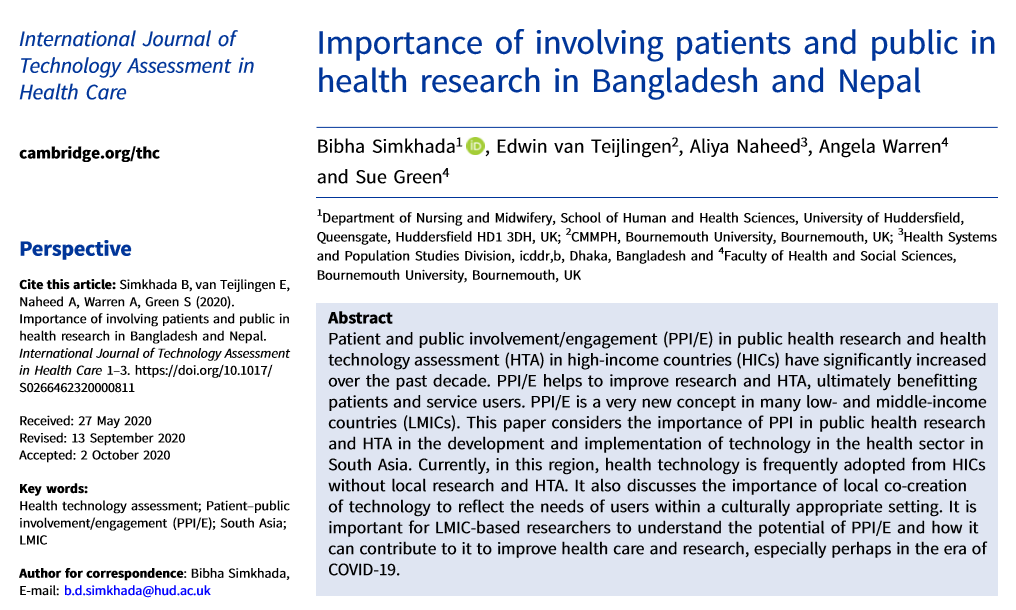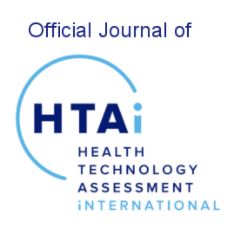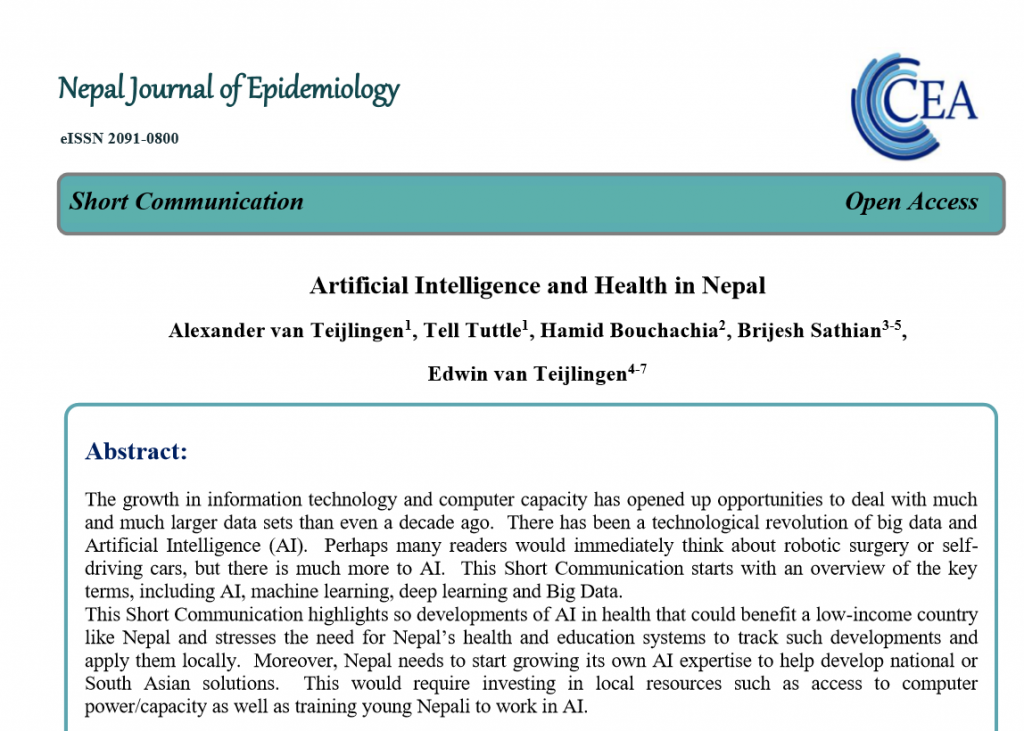The Minister for Universities and the OfS ended the week with the opposite of a charm offensive. Significant interest in student rent reached a head this week with MPs calling for action and supporting student concerns in Parliament. GCSE and Gavin Williamson announced his alternative plans for exams this summer (spoiler alert: the proposal centres on externally set exams, but they will be marked by teachers and other evidence can be taken into account). Perhaps not surprisingly the political gossip centred on whether Gavin Williamson has run out of road.
The Minister takes to Twitter
So perhaps rather late in the day taking a lead from other leaders who (used to) use Twitter to communicate with the masses, and continuing the pattern that both the DfE and the OfS have had since March of communicating with the sector late at night and at weekends, Michelle Donelan took to Twitter on Friday evening (at 7.16pm). With the “student message” headings left in, which were surely drafting notes, it looks like it was done in a hurry. It is safe to say that it hasn’t been very well received, with attacks both from across the sector and also from the group it was probably aimed at – parents (ie voters).
It’s a real issue that the Minister is taking this tone and approach, apart from perpetuating the myth of the £256 million.
And the tone is consistent with the tone the OfS are taking. They wrote to universities on Thursday.
- They say that universities should do all they can to deliver the teaching they have promised to students and make alternative arrangements where this is not possible – this may include putting on extra lectures, repeating parts of the course, or offering fee refunds.
- The OfS does not have legal powers to require refunds to be paid, but it has set out actions for universities and colleges to ensure they continue to meet regulatory requirements so that students can continue to benefit from their education.
- The regulator has asked universities to assess the extent to which they have met the commitments they made to students in relation to teaching and alternative arrangements, and inform the OfS where there are risks that they may not be able to comply with its regulatory conditions.
- Universities should assess:
- whether they were sufficiently clear with new and continuing students about how teaching and assessment would be delivered in 2020-21, the circumstances in which changes might be made, and what those changes might entail
- whether during the 2020 autumn term, students received the teaching and assessment they were promised and might reasonably have expected to receive based on information provided
- whether current plans for the 2021 spring and summer term will ensure that students receive the teaching and assessment they were promised and might reasonably expect to receive based on the information provided.
- The OfS will, where appropriate, take action as the result of notifications from students and others, and is likely to request further details of provider assessments where it has additional concerns.
- Where students are not provided with clear information about how teaching and assessment will be delivered in 2020-21, or where teaching and assessment are not delivered as promised, universities are expected to actively consider refunds or other forms of redress.
- The OfS expects each university to:
- inform students of any further changes to teaching and assessment arrangements, such that these are broadly equivalent to those previously offered to students within the requirements of public health advice
- inform students about their entitlement to seek refunds or other forms of redress – such as the opportunity to repeat parts of their course that were not delivered this year – if they have not received the teaching and assessment promised
- provide students with clear information, advice and guidance about the implications of the changes and the options available to them. This must include clear signposting of the route to complain or seek redress.
- The OfS intends to publish revised guidance by the end of January on protecting quality and standards during the pandemic. These changes will include guidance on the approach to exams and assessments and the appropriate measures universities should take when considering mitigating or exceptional circumstances.
Nicola Dandridge, chief executive of the Office for Students, said:
- “The pandemic is having a profound and ongoing impact on students who are still facing exceptional challenges. Universities and colleges have generally worked tirelessly under great pressure to ensure that students continue to receive good quality teaching, albeit now largely delivered remotely. We have consistently emphasised the importance of universities being clear to students about potential changes to course delivery where face-to-face teaching is not possible.
- “Of course, we understand the tremendous pressures that the new lockdown imposes on universities and colleges, and some may no longer able to deliver the teaching and assessment arrangements that they said they would. This may not be in their direct control. However, in these circumstances they should do all they can to offer students alternatives – for instance by putting on extra lectures or course content later in the year – and where that is not possible, they should consider providing refunds where appropriate.
- “Students will also be rightly concerned where they are being charged rent for properties they can’t currently occupy. Some universities have decided not to charge full rent in these circumstances. We are encouraging all universities and colleges who are not already doing so to consider carefully what the appropriate response is to these unprecedented circumstances where students have been asked not to return to their accommodation this term. We are also asking universities to consider what discussions they can have in support of their students with private landlords.”
Lots of commentary is available and will continue to emerge (apart from the responses to MD’s tweets) but here are some:
- David Kernohan on Wonkhe on options to compensate students
- Jim Dickinson on Wonkhe on the OfS letter
- Chris Parr on Research Professional on the twitter storm
- Fiona McIntyre on Research Professional on the OfS letter
Admissions
Education Secretary Gavin Williamson wrote to Ofqual Chief Regulator, Simon Lebus, setting out the 2021 exam grading contingency options for consultation (including vocational qualifications). The regulator responded the same day with his own letter (its almost as if he knew what Gavin’s letter would say before he received it!).
And then the consultations came out on Friday and run for two weeks. The main proposal for GCSEs and A-levels as noted above is externally set exams, sat in school and marked by teachers, used as part of a package of evidence for teacher assessed grades, with moderation and quality controls but no forced ranking or overriding algorithm, and a massive appeals process for all students which must be managed by schools. On vocational exams it is hard to understand what they are proposing – they want assessments to go ahead and where these are practical and need in person attendance “the assessment will need to wait until it can practically be conducted, and the student is ready.” The position is different because the relationship between Ofqual and the awarding organisations for vocational qualifications is different, so they are largely leaving it to Pearson and the rest to sort out.
Apart from anything else, this is perplexing for school and college students. The PM told them exams were cancelled – what he actually meant was that “normal” exams would not go ahead but that assessment would continue which might well (read almost certainly) include formal exams which will in many cases be sat in school. Lots of people and students welcome the opportunity to have exams. But those who were anxious about them will now be anxious again. If nothing else it would reduce anxiety levels to be accurate when making significant announcements. If the detail wasn’t available (and it was, because they say have been working on it for months) then the PM could just have announced it was being looked at.
Consultation: GCSEs, AS and A Levels
The Secretary of State’s letter says:
- Based on teacher assessment
- A teacher’s final judgement on a student’s grade ought to be as late as possible in the academic year to maximise remaining teaching time and ensure students are motivated to remain engaged in education
- Consulting on what broader evidence teachers require in setting grades and whether the externally set tasks and papers are required or just recommended.
- Pupils should be assessed based on what they have learnt, rather than against content they haven’t had chance to study (balanced against good enough coverage of the curriculum)
- Schools and colleges should undertake quality assurance of the teachers’ assessments and grades and provide reassurance to the exam boards. There will be training and support for this and external checks in place for fairness and to ensure consistency between institutions.
- Changes to the institutional grades awarded as a result of the external quality assurance are expected to be an exception – the process will not involve second-guessing the judgement of teachers but confirming that the process and evidence used to award a grade is reasonable. Changes should only be made if those grades cannot be justified, rather than as a result of marginal differences of opinion. Any changes should be based on human decisions, not by an automatic process or algorithm.
- A clear and accessible route for private candidates to be assessed and receive a grade – consultation will consult on these options.
- A clear route for review and appeal of grades (again ironed out in the consultation).
- No algorithm will be used nor automatic standardisation of any individual’s grades
Consultation detail:
- It proposes externally set papers, possibly modular to allow teachers to choose which papers depending on what has been covered, to be marked by teachers and then included in the assessment along with other evidence. Exams to be sat in schools but with potential for online for students who can’t attend. One of the consultation questions is whether these papers will be mandatory.
- The main difference from last year is that there will be no forced ranking of students and while there will be moderation by the exam boards (which is surely going to be algorithm based although they can’t use the A word) any decisions have to be made by people. There will be no formal grade boundaries for the exams.
- The other thing to note is that all students can appeal and the schools have to manage the appeals – a further appeal to the exam board will be on procedural issues only. Also on timing – the assessment is to be made as late as possible but results will be published early……
Consultation: Vocational and Technical Qualifications (VQTs)
The Secretary of State’s letter says:
- Students will be able to progress fairly, irrespective of whether they sat an exam in January
- Assessments should continue, taking place remotely, as adapted by individual awarding organisations
- Recognition that level of disruption may mean no all internal assessment can be completed by all students
- Essential assessments will be held in February and March for some students – i.e. where they must demonstrate the proficiency required to enter directly into employment or are needed to complete an apprenticeship – these will continue with protective measures in place.
- Written exams will not go ahead. Assessments to be held online where they can, where they can’t alternatives will be consulted upon.
Consultation:
The proposed new alternative regulatory arrangements would:
- permit awarding organisations to develop an approach to awarding qualifications in scope of the Department’s proposed policy on the basis of incomplete assessment evidence. As part of their approach awarding organisations should consider their minimum evidential requirement for awarding these qualifications to ensure sufficient validity and reliability. They should also consider where they need additional assessment evidence from teachers and what form this should take. For qualifications most similar to GCSEs, AS and A levels we would expect awarding organisations to use similar approaches to assessment and awarding. These approaches are currently being consulted on in parallel with this consultation.
- expect awarding organisations to be mindful of the burden their approach places on centres and learners, and to provide clear and timely advice and guidance
- require awarding organisations to issue certificates (where appropriate) as normal and to not refer on the certificate to a result having been determined under the alternative regulatory arrangements
- require awarding organisations to include private learners in their arrangements as far as possible
- permit awarding organisations to take the same approach for qualifications taken in international markets, provided that this does not undermine the validity of the qualifications. We would also expect awarding organisations to consider and address the risks around malpractice and the particular needs of the international market
In Lebus’ letter to Williamson a few points stand out:
- we are fully committed to doing all that we can, including making sure teachers are equipped and making use of awarding organisations’ quality assurance processes, so that students’ results are as fair as possible
- no assessment arrangements can take account of all the different ways that students have suffered from the pandemic.
- we have been considering together the potential alternatives to exams and other formal assessments for some time and have learned a number of lessons from last summer. Our thinking is well advanced. It is, though, important that all affected by these arrangements have the opportunity to comment on them.
- We both wish to ensure that accountability for decisions following the consultation is clear and transparent. We understand your final determinations will be reflected in a formal direction to us under the relevant legislation. We will publicly and formally record the decisions we take in light of your direction. [A ‘don’t blame us’ this time warning?!]
- we will want the consultation to consider the role of externally set short papers.
- we also wish to support and incentivise students to engage with their education for the remainder of the academic year, including to continue with any non-exam assessment where possible. We propose that the final determination of a student’s grade should take place as late in the academic year as possible. We believe this will give students a greater sense of agency, which is critical to securing widespread acceptance of the outcomes
- It is important that the consultation makes clear to all, especially those who rely on the results to make selection decisions, that overall outcomes this year will likely look different from 2020 and previous years. This issue will be important for your work with the post-16 and higher education sectors to secure orderly progression and to protect the interests of disadvantaged students.
- We are acutely aware that all who have a stake in the results this year, particularly students and their parents and carers and teachers, as well as higher and further education institutions and employers, need certainty about the arrangements to be put in place
A selection of this week’s coverage:
- Wonkhe: David Kernohan on the proposals
- Research Professional – An education and teaching expert has warned that universities may need to give new students extra assessments in September to tackle the gaps in their learning at school during the pandemic, even if they have achieved top grades.
- The Times – heads want GCSE and A-level grades to be given early to avoid a repeat of last year’s chaos.
- Research Professional – Williamson promises robust appeals process for A-levels
- The BBC – GCSE and A-level pupils could sit mini exams to aid grading
- TES – Schools may not fully reopen after half term, warns PM
The Petitions Committee agreed to schedule debates for the following e-petitions which reached over 100,000 signatures:
- Cancel GCSE and A-levels in 2021 replace with Course Work and Teacher Assessment.
- Allow teacher predicted grades for BTEC students.
However, as Westminster Hall debates have been suspended (as a Covid safety measure) neither will see a debate in the immediate future.
Admissions Reform: Research Professional have an article: There is an “appetite for reform” of the university admissions process, according to the Office for Students’ director for access and participation—but changing the application timetable is not a “magic bullet”.
Research
Kwasi Kwarteng, who was previously minister for Business, Energy and Clean Growth, has taken over as Business Secretary as Alok Sharma has gone off to head COP26.
- Research Professional (RP): One of the immediate issues that Kwarteng will be asked to consider is whether the Research Excellence Framework should be further delayed given the pressures put on university staff by the latest lockdown. No-one has yet been prepared to make the case that ensuring REF returns are made by 31 March is a priority for our newly designated critical workers. RP cover this here and here.
- Also Research Professional: emails seen by Research Professional News have revealed the close ties between prime minister Boris Johnson’s controversial former adviser Dominic Cummings and the UK’s largest public research funding agency.
The Lords Science and Technology Committee held a session on The contribution of Innovation Catapults in delivering the R&D Roadmap you can read a summary of the session here. It included scrutiny of the catapults role in meeting the Government’s 2.4% R&D target.
UKRI announced the winners of the second phase of the Industrial Strategy Challenge Fund’s (ISCF) decarbonisation of industrial clusters: cluster plan competition. The six winners sharing the £8 million come from consultancies, development companies, local authorities, partnerships, and consortiums. It is unclear if any have strong links with universities.
NERC appointed four new Science Committee members from the HE sector. And the Wellcome Trust’s new Director of research programmes, Cheryl Moore, will take up the post in May 2021.
Research Fundermentals published their own horizon scan and predictions about what 2021 will mean for research matters.
Research Professional also published these articles:
- Two of the UK’s major national academies have called on the government to quickly finalise association to Horizon Europe, the European Union’s next R&D programme, following the agreement of a post-Brexit trade deal. UK researchers’ task is to make Horizon Europe participation value for money.
- A former head of Innovate UK has called for UK Research and Innovation to have more independence from government,
Parliamentary Questions:
- Evidential basis for £1 of public R&D eventually stimulates between £1.96 and £2.34 of private R&D
- Effect of the reduction in the Official Development Assistance budget on the UK’s reputation as a partner of choice in international research and development projects
- How much funding is allocated to the development and uptake of New Approach Methodologies; and which sources that funding comes from
- What the regional distribution is of institutes receiving funding through Government sources for the development and application of New Approach Methodologies.
- With reference to the 2020 Spending Review, when the £350 million of funding announced for UK Research and Innovation (UKRI) will be made available; and how that funding will be allocated among the seven research groups.
Student Concerns
Despite parliamentary petitions and grass roots campaigning students made small progress with the calls to be refunded for tuition fees during online study and receive rent reductions or get out of their letting contracts. The lobbying quietened down for a while but gained momentum in the last week. Towards the end of last week several Labour MPs signed an early day motion (EDM) calling on the Government to scrap tuition fees and cancel student debt. As it was a manifesto pledge for Labour the EDM wasn’t remarkable.
Next the All-Party Parliamentary Group for Students launched an inquiry into the impact of Covid-19 on university students and calls for compensation.
The number of parliamentary questions relating to student fees and accommodation costs has grown significantly again, including those relating to healthcare tuition fees and nurses working within the NHS as part of the Covid response. This week rent stories exploded across the media and HE specific sources, students initiated rent strikes, Unite Students (a major student accommodation provider announced partial refunds and concessions) and MPs came out in support of student rental concerns.
BBC – students have pledged a rent strike over unused rooms
Research Professional – universities have been warned that they could be breaking the law by refusing to allow students to return to halls; and:
The UCAS Knight Frank survey was released to a very receptive national audience. Wonkhe describe:
- …a survey of more than 70,000 new and current students between February and November last year. The Student Accommodation Survey finds that between March and June, around 75 per cent of students surveyed reported that they had or were planning to move back home, though there were regional variations.
- Seventy-two percent of last year’s first year students were not paying rent after campuses closed – 71 per cent of students in other years were paying full rent.
- The survey also offers an insight into who pays for accommodation – 41 per cent of first years, and 49 per cent of those in other years, reported that their parents or guardians were funding accommodation costs. On average, students living in private purpose built student accommodation (PBSAs) paid £7,200 per annum, compared to £6,650 in university accommodation and £5,900 for students in privately rented accommodation.
- Sixty-nine per cent of students living in university-owned or PBSAs were happy with their landlord’s approach to Covid-19, compared to just 25 per cent of students in houses of multiple occupancy.
Research Professional add: Unsurprisingly, the ability to terminate tenancy agreements and a degree of flexibility on rent were highlighted as factors behind greater contentment with purpose-built accommodation over other settings…Respondents renting in non-purpose-built housing said private landlords were not prepared to make “any allowances for the impacts of the virus” and had “poor communication or lack of understanding and sensitivity around students’ financial situations and job losses”.
On Wednesday a NUS survey highlights student rental concerns. Wonkhe summarise: The most recent iteration of an NUS survey finds that 69 per cent of students are worried about their ability to pay rent, and 22 per cent have been unable to pay their rent in full in past months. The survey of 4,193 students ran between 6 and 23 November.
An equally well timed YouGov poll surveyed the nation (so not just those with a vested interest as students or parents of students) on accommodation fees. They asked Do you think students who are unable to return to their student accommodation due to lockdown should still have to pay rent as normal or not? 54% of the public respondents felt that students shouldn’t have to pay anything at all; 30% felt they should pay a reduced rate; 5% felt students should continue to pay their rent in full.
Several MPs and Lords have expressed support for students to be offered some form of package or reduction. David Davis MP tweeted his letter to the Government to support university students who are unable to return to their term-time accommodation. He also stated Unite Students are right to provide refunds to students for periods where they cannot return to their properties and calls on the Government to step up.
This cross-party parliamentary support for student rent forgiveness alongside Boris Johnson acknowledging that the issue needs addressing, and Unite Students’ proactive refunds have been significant progress for this student concern. What remains to be seen is what position the Government will take however, no matter how sympathetic they are to the cause, it is still hard to imagine a Government scheme offering blanket refunds (including private landlords).
A selection of parliamentary questions on tuition fees…
- Assessment made of the potential merits of reducing tuition fees for the 2020-21 year to compensate students for the effect of the covid-19 outbreak on their university studies and experience.
- To ask the Secretary of State for Education, if he will bring forward proposals for a tuition fee rebate for students who have had to study remotely as a result of the covid-19 outbreak
And parliamentary questions on other student matters:
- What discussions he has had with universities on providing extra support for (a) mature students and (b) students with children who may be facing additional pressure and responsibilities during the covid-19 outbreak.
- Remote (HE) students access to adequate mental health support
- What additional teaching support is available to university students during the January 2021 lockdown period while they do not have full access to their tutors; and what financial support students can access to compensate for lost income from part-time work.
Finally the Petitions Committee published their latest decisions on e-petitions which received over 100,000 signatures and agreed to schedule a debate for:
However, Westminster Hall debates have been suspended (as a Covid safety measure) so the debate will not take place in the immediate future.
Professional Registration
The Quality Assurance Agency (QAA) issued a press release stating they’re in discussion with Universities Minister Michelle Donelan, alongside 17 professional, statutory and regulatory body representatives and Universities UK to address new challenges created by the COVID-19 pandemic. The press release states they: discussed a range of barriers affecting progression and graduation in accredited programmes, in order to ensure students are able to complete their awards this summer and progress into the workplace with continued assurance of high standards and competencies.
QAA Chief Executive, Douglas Blackstock said:
- Throughout the pandemic, QAA has engaged with PSRBs on behalf of our members and with a focus on ensuring students can progress towards the profession they have chosen. These bodies play an important role in protecting public safety and we are grateful that they have been able to adapt flexibly during the pandemic.
- QAA has worked with professional bodies for many years and will continue to work collaboratively with them, and our members, so that students can achieve professional competencies and learning outcomes and so that standards are maintained.
Universities Minister, Michelle Donelan said: It is absolutely vital that students are able to graduate from their courses this year and achieve the meaningful qualifications that they need to kickstart their careers. Education has been our priority from the start of this pandemic, and we will continue to work closely with QAA, Universities UK and sector bodies, to identify and address any challenges they face during this difficult time.
Will he stay or will he go?
Speculation about Williamson’s continued tenure as Education Minister continues. On Monday Research Professional reported Boris as stating that the education secretary is doing his job “to his utmost ability”. One doesn’t quite know if that is support or censure. The BBC have: Gavin Williamson: How has he survived? It is well worth a read, it begins: Gavin Williamson’s political obituary has been written so many times he must sometimes feel like the walking dead. So how has England’s under-pressure education secretary survived in his job? Or is there a counter-narrative that he’s been unfairly blamed for decisions not really his own? For example, it has been well trailed that Boris went over Gavin’s head in closing the schools during a meeting he didn’t attend – meaning a U turn in one of Gavin’s flagship policies (that schools would remain open). The question of a reshuffle or even just an ousting of Williamson may come down to the reluctance (stubbornness?) of Boris to sack key staff, despite their mistakes and public unpopularity. Or perhaps as the BBC put it Gavin knows where the bodies are buried.
Gavin Williamson was scrutinised by the Commons Education Committee on Wednesday. Prior to the session Research Professional speculated what he might be questioned on in this brilliant article. It mentions many of the major points and issues facing education and HE at present and with only a couple sentences on each it is a great catch up for anyone still stuck in the Christmas cheese or overcome by home schooling.
In the end the Committee had very little direct HE content. There was strong focus on schools and on matters surrounding the alternatives to the 2021 exams (including BTEC) Williamson’s performance at Committee maintained the Government lines and yielded little new information. He appeared uninformed at times and employed famed political techniques such as not answering the question asked, answering a question that wasn’t asked, avoiding apologising and blaming others (schools mostly). However, he was focussed in his answers and less aggressive in tone than in recent appearances. Dods provide a comprehensive summary of the session here.
If you want the short version, there was one question on HE:
- Asked about financial sustainability for universities, including the challenge for the newer ones with no reserves, and about student accommodation costs. Rambles about universities giving additional support (?). Some institutions may be in financial difficulties, he says the restructuring regime is established and ready to go. Despite concerns there have been no collapses but contingency is ready. MP says her local university was offered a loan not a grant and some management consultants that they didn’t want or need and they have had to have major staff cuts. GW says some will have to restructure what they offer and how they run. Zero empathy for the sector in these replies. He doesn’t answer the questions either.
And he mentions us at the end when he thanks everyone working in education, including universities.
Graduate Wellbeing Analysis
The OfS have released data for key performance measure 17 – graduate wellbeing. It shows part timers scoring higher on life satisfaction and for feeling that things done in life are worthwhile.
Note – only the respondents who gave the strongest positive wellbeing response were included in the above analysis. For the data and more information start here. It may seem odd to you that the OfS data release only covers this aspect and limited data. It seems odd to us too. One hopes it isn’t the regulator searching for a new stick to beat HE with or engaging in political point scoring.
Education Policy – research / curriculum development
The Education Policy Institute has published two reviews. Curriculum policy in England has been characterised by frequent change in recent decades. In order to identify lessons about how curriculum systems can be better formulated and revised in England, this evidence review outlines how five leading education nations around the world have developed their curriculum systems in recent years.
The first review aimed to understand how leading education nations around the world develop their education policies and examines the education systems of Finland, Japan, New Zealand, Scotland and South Korea – How Leading Education Nations Develop And Reform Their Curriculum Systems.
The second considers the role of research and evaluation in education policymaking in leading nations including Australia, Finland, Japan, Scotland and Singapore. It focuses on how leading countries organise, focus and fund their education research and evaluation, both in the context of major system change and in terms of how each country assesses the effectiveness of its education system.
Access & Participation
The Education Committee continued hearing evidence into the inquiry on Left behind white pupils from disadvantaged backgrounds. Dods have provided a summary of last week’s session which covers several aspects relating to HE.
Fair Admissions: The Nuffield Foundation have published Fair Admission to Universities in England: Improving Policy and Practice. Neon describe the report: A new report from the Nuffield Foundation finds that highly selective universities in England are increasingly taking into account the socioeconomic and educational contexts in which applicants achieved their grades when making admissions decisions. However lead author, Professor Vikki Boliver of Durham University argues that universities should be bolder in their approach:
“Universities have taken some tentative steps in a positive direction when it comes to widening access to higher education for students from disadvantaged and under-represented backgrounds. This is encouraging but by being bolder we believe that they can further improve the chances of applicants from disadvantaged backgrounds.”
The report recommends several steps that universities should take including:
- Reducing entry requirements for contextually disadvantaged applicants by more than just one or two grades.
- Contextualising all admissions criteria, including GCSE grades, personal statements and interview performances.
- Ensuring that the new commitments to supporting contextually disadvantaged students to achieve their potential at university are fulfilled.
Overall the report recommends switching from the traditional admissions model, where places go to the highest qualified candidates, irrespective of social background, to a model where prospective students’ qualifications are judged in light of their socioeconomic circumstances. The report also recommends that there is a move towards post qualification admissions and replace POLAR with individual measures of socioeconomic disadvantage which is made available to universities.
Parliamentary Questions:
- Barriers for care leavers in obtaining broadband contracts.
- Assessment of the potential merits of a long-term approach to funding (a) Uni Connect and (b) other social mobility projects to enable them to establish themselves and demonstrate their effect.
- What discussions he has had with the Chancellor of the Exchequer on the effect (a) Uni Connect and (b) other outreach projects on people from disadvantaged young people during the covid-19 outbreak.
- What assessment he has made of the effect of the timetable for a funding decision for Uni Connect on (a) staff delivering and (b) the continuity of that programme.
International & Mobility
Research Professional published: Drop in international first-years made up by other students
On Turing The Times has an opinion piece from Taiwo Owatemi, MP for Coventry North West, on the inadequacies of the new scheme.
Parliamentary Questions
- School exchanges within new Turing system.
- The Government are still refusing to allow international students who have been unable to complete their course in the UK access to the graduate immigration route.
Parliamentary Questions
Sir John Hayes supports the alternatives to HE agenda:
- Steps to incentivise young people to enrol in non-university routes of higher education
- Request for update on progress in (a) reducing the number of young people going to university, (b) increasing the number and quality of apprenticeships and (c) redirecting funding from Russel Group universities to providers of technical education.
Regulatory
- What steps he is taking to improve the external oversight of universities in the handling of cases of sexual misconduct.
Inquiries and Consultations
Click here to view the updated inquiries and consultation tracker. Email us on policy@bournemouth.ac.uk if you’d like to contribute to any of the current consultations.
Other news
Censoring ‘Free Speech’: Students and graduates recruited to work on a free speech campaign have resigned in protest stating their views were censored and they were pushed to conform. There was also anger that they had been signed up without understanding the links between Toby Young’s controversial pressure group the Free Speech Union (FSU) and the project they had been recruited to. The Guardian has the story.
Poverty report: The Joseph Rowntree Foundation has published its annual report on the nature and scale of poverty across the UK. It covers investment in skills and the retraining agenda.
Mental health: The Government have announced they will reform mental health laws.
T levels: The Government announced a £135 million capital fund for T level providers to bid into. The Government press release states: the multi-million pound investment will ensure T Level students have access to the world class facilities and cutting-edge equipment they need to get ahead.
Tech access for disadvantaged pupils: Commenting on the Department for Education’s supply of laptops and other equipment to enable disadvantaged students to access remote learning, Kevin Courtney, Joint General Secretary of the National Education Union, said: It is not credible for Boris Johnson or Gavin Williamson to claim that their priority under Covid is to protect the very same disadvantaged students they have so routinely let down. It is a stain on the Government’s record that they have failed disadvantaged students so badly. The immense disruption in autumn half term, with so many absent from school due to self-isolation or close contact with those in their bubble who were having to self-isolate, was a clear warning that the education secretary needed to properly build the groundwork for a continuity and equity of education for all students. But the warning went unheeded, and in Gavin Williamson ‘s recent announcements on laptop and data roll-out it is abundantly clear he is still weeks away from anything like an adequate response. Schools have been kept waiting for equipment that has been promised to them throughout the pandemic, with last minute delays, changes or retractions of the kit they need becoming an alarmingly normalised response from the Department for Education. It is surely a no-brainer that schools should be compensated for having to plug the gaps, which are entirely due to governmental sloth. Every child must have access to the equipment they need to ensure they can learn safely from home. When will the government take their responsibility towards these children seriously? However, speaking at the Education Committee on Wednesday Gavin Williamson painted a very different picture stating the equipment had been sent to schools and some were in line to receive additional items.
Islamophobia: Research Professional published this article Universities fail to see ‘insidious nature’ of campus Islamophobia stating that the report finds improvements are needed by institutions.
EdTech Boom: FE News report that lockdown measures and mandatory school closures in 2020 led to a 71.5% growth of the UK educational technology (EdTech) sector – despite a -11% contraction in GDP overall. Over the course of the pandemic, schools, colleges and universities have had to move lessons online, and many educators, organisations and businesses have developed smarter ways to deliver remote learning. The growth puts the value of the UK EdTech market at almost £3.5bn – with EdTech exports pre-crisis bringing in £170m to the economy, now expected to have topped £292m.
Subscribe!
To subscribe to the weekly policy update simply email policy@bournemouth.ac.uk. A BU email address is required to subscribe.
External readers: Thank you to our external readers who enjoy our policy updates. Not all our content is accessible to external readers, but you can continue to read our updates which omit the restricted content on the policy pages of the BU Research Blog – here’s the link.
Did you know? You can catch up on previous versions of the policy update on BU’s intranet pages here. Some links require access to a BU account- BU staff not able to click through to an external link should contact eresourceshelp@bournemouth.ac.uk for further assistance.
JANE FORSTER | SARAH CARTER
VC’s Policy Advisor Policy & Public Affairs Officer
Follow: @PolicyBU on Twitter | policy@bournemouth.ac.uk
 A masterclass was held at Shandong University on 17 and 18 November 2020, overseen by the British Council, with the aim of creating measurable benefits for Chinese patients and the economy by generating new health economics expertise.
A masterclass was held at Shandong University on 17 and 18 November 2020, overseen by the British Council, with the aim of creating measurable benefits for Chinese patients and the economy by generating new health economics expertise.


 Thank you to those who attended the IMSET launch last week. We hope that you now have a better idea of who we are and what we are aiming to do.
Thank you to those who attended the IMSET launch last week. We hope that you now have a better idea of who we are and what we are aiming to do.






 SAIL (Staying Active and Independent for Longer) has been a three year EU funded project that utilised a social innovation approach to developed 10 pilots that aimed to support active aging. Four pilots were developed in the Netherlands, 2 in France, 2 in Belgium and 2 within the UK. The role Bournemouth University Team (Prof Ann Hemingway, Prof Adele Ladkin and Dr Holly Crossen-White) was to undertake an evaluation of the pilots and develop a feasibility study regarding the use of social innovation.
SAIL (Staying Active and Independent for Longer) has been a three year EU funded project that utilised a social innovation approach to developed 10 pilots that aimed to support active aging. Four pilots were developed in the Netherlands, 2 in France, 2 in Belgium and 2 within the UK. The role Bournemouth University Team (Prof Ann Hemingway, Prof Adele Ladkin and Dr Holly Crossen-White) was to undertake an evaluation of the pilots and develop a feasibility study regarding the use of social innovation.











 Nursing Research REF Impact in Nepal
Nursing Research REF Impact in Nepal Fourth INRC Symposium: From Clinical Applications to Neuro-Inspired Computation
Fourth INRC Symposium: From Clinical Applications to Neuro-Inspired Computation ESRC Festival of Social Science 2025 – Reflecting back and looking ahead to 2026
ESRC Festival of Social Science 2025 – Reflecting back and looking ahead to 2026 3C Event: Research Culture, Community & Cookies – Tuesday 13 January 10-11am
3C Event: Research Culture, Community & Cookies – Tuesday 13 January 10-11am Dr. Chloe Casey on Sky News
Dr. Chloe Casey on Sky News ECR Funding Open Call: Research Culture & Community Grant – Application Deadline Friday 12 December
ECR Funding Open Call: Research Culture & Community Grant – Application Deadline Friday 12 December MSCA Postdoctoral Fellowships 2025 Call
MSCA Postdoctoral Fellowships 2025 Call ERC Advanced Grant 2025 Webinar
ERC Advanced Grant 2025 Webinar Horizon Europe Work Programme 2025 Published
Horizon Europe Work Programme 2025 Published Update on UKRO services
Update on UKRO services European research project exploring use of ‘virtual twins’ to better manage metabolic associated fatty liver disease
European research project exploring use of ‘virtual twins’ to better manage metabolic associated fatty liver disease